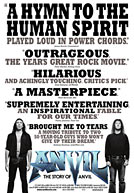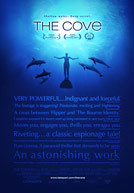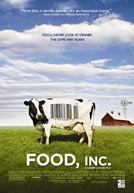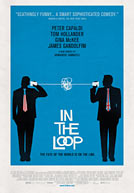In Which I Try and Fix the Entire Film Industry
 Friday, May 10, 2013 at 3:05 PM
Friday, May 10, 2013 at 3:05 PM Most every country in the world taxes the value of goods coming into their country from overseas, the US included. There are massive books which detail exactly how much each item should be taxed ( called a duty or tariff when applied to imported goods ). The detail is hilarious and stunning. For example:
Bicycles and other cycles (including delivery tricycles), not motorized:
Bicycles having both wheels not exceeding 63.5 cm in diameter
11%
And it continues. So depending on where a bike is from, how big it’s wheels are, and various other factors, it’s import duty can be anywhere from 0% to 30% of the value of the bike. Most bikes fall into the 11% rate though.
Now, if you want to import a bike into, say, China, their duty is 23%. What this means is a $200 bike made in the US will cost you $250 in China, while a $200 bike made in China will cost you $225 in the US ( yes, I rounded the numbers ). What that also means is that if you figure a way to make the same bike in China for $180, when you import it into the US, it will cost $200, with the duty added in.
Part of the idea of import duties is to make it more expensive to produce goods overseas than it would be to produce them locally. The core of the idea being if it costs $200 to make and sell a bike with a profit, why would you ask a customer to pay $225 for a Chinese bicycle, not even including the added expense of actually physically importing the bike?
Of course, this entire model has gone out the window with three concepts that have overlapped in a nice way to destroy 1st world countries.
First, is cheap transportation. The ability to ship most anything from anywhere to anywhere cheaply by cargo ship is extraordinary. And speed isn’t really an issue either, you can order a customized iPad engraved with your name that will make it from a factory in China to your hands in under 48 hours.
Second, is the rise of Free Trade policies and ideas which have lowered tariffs into most 1st world nations to a very low amount - notice the US rate for a bike is less than half of China’s for importing the average bike. The UK is 15%, still ⅔ of China’s rate. Sometimes it’s far more - http://www.bike-eu.com/Laws-Regulations/EU-Directives/2011/7/Level-Anti-Dumping-Duty-on-Chinese-Bicycle-Imports-Continues-as-485-BIK005087W/
And third is, of course the lower wages and cost of living, as well as lower standard of living, in many of the places where manufacturing has moved.
This last is why you see so many goods stamped with “Made in China”. It’s not a $200 bike with an 11% tariff. It’s $60 with a 11% tariff, that’s then sold for $150. It makes a massive profit for the retailer/importer and still is cheaper than the American made one.
So what does any of this have to do with VFX or films?
Runaway production is a major problem for US creatives. You will have American lead actors and American directors making movies written by Americans, paid for by American corporations produced and post-produced in foreign countries because bribes and kickbacks in the form of tax subsidies artificially lower the cost of doing the work there.
Ironically, the movie studios themselves have made an argument that can solve this problem, and that is in relation to piracy. The MPAA’s own study claims that piracy was costing them $6,100,000,000/year. Regardless of whether or not this is an accurate number is not the point. The very act of claiming it, however, shows the studios put a monetary value on the intellectual property that is a film. Not just the physical medium, but the value of somebody viewing the film.
This company is importing something of value, produced overseas. So I ask, why isn’t it tariffed the same as any other product?
The key factors that lead to work outsourcing are all exacerbated by digital media production, especially VFX. Near instantaneous delivery of material, at incredibly low costs - just the cost of an industrial strength internet connection. No import duties at all, a free trader dream, and low wages - either through lower standards of living, exchange rate imbalance, or tax subsidies.
I humbly suggest the following very reasonable and just equation for taxing films.
T = B * ( ( 0.0001 * S ) * X )
Where the tariff - T, is the Total pre tax incentive Budget multiplied by 0.01% * highest number of US screens concurrently played on within 6 months of release ) times the percentage of the final film produced overseas.
This is a perfectly fair and easy way to stop runaway production, while at the same time alleviating any concerns over stopping access to a foreign film. It covers both outsourcing to third world nations where wages are 1/100th what they are in the States, and against international tax subsidies allowing worker’s wages to be artificially lessened on paper.
How would it work?
Note: i’m going to simplify the math here so that it’s easy to grasp, obviously it will become more complicated - especially on labor based tax breaks, but that will provide hard working accountants with work as well.
Let say you have a $200,000,000 film with an $90,000,000 VFX budget. It has a total runtime of 112 minutes, 97 minutes of which are VFX shots. The distribution plan is to release on 3750 US screens.
US Based Production
Production Location: Los Angeles
Production Spend: $110,000,000
VFX Location: San Francisco
VFX Spend: $90,000,000
Tariff: $0
Total Cost: $200,000,000
US/UK Based Production
Production Location: Los Angeles
Production Spend: $110,000,000
VFX Location: London
VFX Spend: $72,000,000 ( $90,000,000 w/ 20% tax break )
Tariff: $64,955,357 ( 32.4% )
Total Cost: $264,955,357
Canadian Based Production
Production Location: Vancouver
Production Spend: $82,500,000 ( $110,000,000 w/ 25% tax break )
VFX Location: Vancouver
VFX Spend: $67,500,500 ( $110,000,000 w/ 25% tax break )
Tariff: $75,000,000 ( 37.5% )
Total Cost: $275,000,000
But - you say, what about all the great foreign films, won’t they never get released here?
Au contraire, mon ami.
Take a film made in Britain that’s actually British - Shawn of the Dead*.
It was made 100% in the UK, by UK actors. It's British characters, in Britain, doing British things. It's also a great film. Budget was $5,000,000, and opened on 607 American screens. Under my plan, it's total tariff would be 6.07%, or $303,500. Opening weekend US box office for Shawn of the Dead? $3,300,000. Total US box office - $13,542,874.
 That's a lot of math...
That's a lot of math...
The way the formula works out, it escalates based on not only the budget of a movie, but how wide an appeal it has. If there was a weird Icelandic picture about cod fishing that cost $100,000,000**** but was only shown in the US on one screen because it has, shall we say, limited appeal, it would have a tarrif of $10,000. If you had a $100,000 Icelandic cod fishing movie- much more likely -it would have a tariff of $10.
And you can even add an exemption for any film playing at a film festival.
So, there you go. Make it more expensive to produce big budget, pop entertainment, allow niche films, art house and the like to come through essentially untouched. It doesn’t stop sovereign nations from adopting whatever tax policies they wish. If the UK wants to use taxpayer funds to support the film industry, fine. But have it support the British film industry, not American film corporations. Same for Canada, New Zealand - wherever.
And because the tariff is based on the pre-incentive budget of the film in American dollars, the high salaries of actors, directors , etc will offset the benefits of going to low wage markets.
Similar formulas could be worked out for TV, commercials, video games, etc., the parameters of which should be worked out by people who know more about those industries than I.
This is also important to other industries that can easily be outsourced - programming, accountants, architects. The list is long. The future is in producing things in a digital format, and sliding it around the planet as packets of electrons undercuts a fundamental form or trade regulation.
Now, the ugly truth. This will never happen. The Democrats rely on big money contributions from Hollywood and the Republicans never like anything that raises taxes. But you can do something. Write this suggestion to your congressman and Senators. Talk about protecting jobs.
If they are a Democrat, appeal to the fact that many of these jobs are Union jobs. They’ll like that.
If they are a Republican, remind them that they are protecting “‘Merican jerbs”, and it raises taxes on the lefty Hollywood Elite. They’ll like that.
People may say “Isn’t this protectionist?”
Absolutely. But if the goal is to protect American jobs, then we must, by definition, adopt protectionist actions.
* it’s also French**
**Working Title and StudioCanal produced it***
***okay, technically Working Title is owned by Universal, but they are only in the UK, and make UK films
**** that’s a cost of $313.47/Icelander









